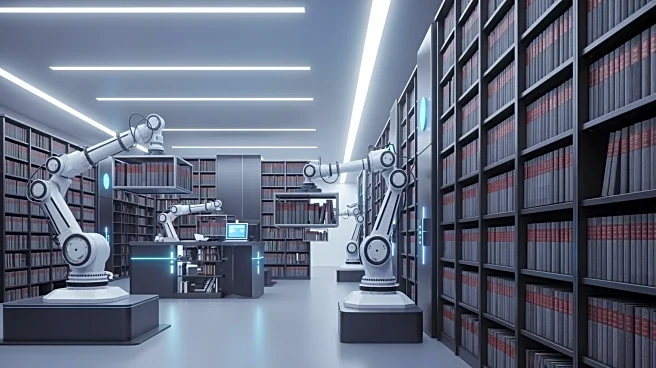What's Happening?
The integration of artificial intelligence in legal practice has sparked debate over its impact on lawyer competency. The phenomenon known as 'AI hallucination' has led to instances where lawyers cite
non-existent cases, raising questions about the reliability of AI tools in legal workflows. Despite the potential for AI to streamline processes, the responsibility for accuracy remains with the human user. The legal industry is experiencing a shift in workflow dynamics, with AI tools accelerating the writing process but potentially compromising the thoroughness of legal checks. This has led to a discussion among law professionals about whether AI is making lawyers less diligent or simply exposing existing carelessness.
Why It's Important?
The use of AI in legal practice is significant as it represents a broader trend of technological integration across industries. While AI can enhance efficiency, it also poses risks to the quality and accuracy of legal work. The potential for AI to change the nature of legal writing and argumentation could impact the integrity of legal proceedings. Lawyers who rely heavily on AI without proper oversight may face professional consequences, including sanctions for inaccuracies. This development highlights the need for legal professionals to adapt to new technologies while maintaining rigorous standards of practice.
What's Next?
The legal industry may need to establish clearer guidelines and training for the use of AI tools to ensure accuracy and accountability. As AI technology continues to evolve, legal professionals must balance the benefits of speed and efficiency with the necessity of thoroughness and precision. The ongoing debate may lead to reforms in legal education and practice standards, emphasizing the importance of human oversight in AI-assisted workflows. Stakeholders, including law firms and regulatory bodies, may need to collaborate to address these challenges and safeguard the integrity of legal processes.
Beyond the Headlines
The ethical implications of AI in legal practice extend beyond immediate concerns of accuracy. The shift towards automation raises questions about the role of human judgment and the potential erosion of critical thinking skills among lawyers. As AI tools become more prevalent, the legal profession must consider the long-term impact on the development of legal expertise and the preservation of professional standards. This situation underscores the importance of integrating ethical considerations into the adoption of new technologies in the legal field.









